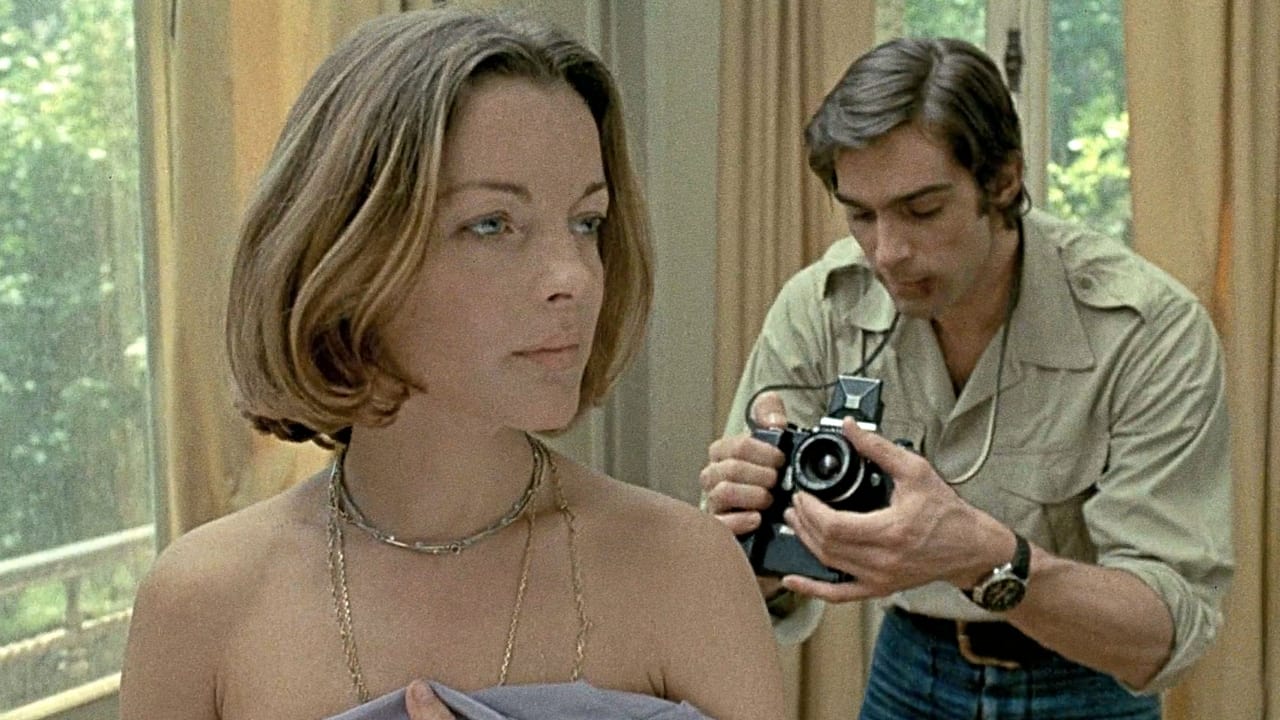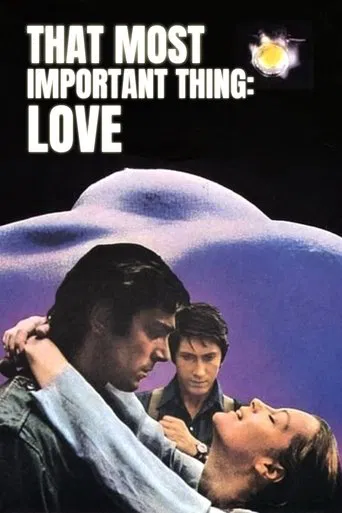

The best films of this genre always show a path and provide a takeaway for being a better person.
... View MoreThis movie feels like it was made purely to piss off people who want good shows
... View MoreGreat movie. Not sure what people expected but I found it highly entertaining.
... View MoreThrough painfully honest and emotional moments, the movie becomes irresistibly relatable
... View MoreHardly anything witty about love has dawned on Zulawski's third feature, an almost exclusively chamber drama, where a burgeoning attraction between a pornography photographer Servais Mont (Testi) and a second-rate actress Nadine Chevalier (Schneider), has barely taken off from the platonic struggle, because Nadine is married to Jacques (Dutronc), to whom she bears a tangible fusion of gratitude, responsibility and affection, which complicates their situation into a torrid emotional abyss so as to testify that love is indeed the most inscrutable, unpredictable, yet the most important thing.Crammed in the high-ceiling, antique-looking Parisian apartments and loci like theatre, bar and hospital, its mise-en-scène strains to stay claustrophobic, fluid and quivering, signals the characters' shaky states, but, Zulawski and the screenwriter Christopher Frank fail to let their emotions run the full gamut to reach out its dazzled viewers, a stately but shallowly anaemic Testi cannot portray a role, whose inner depth is apparently out of his league, fumbles and routinely daydreams from scene to scene, his fervent gaze can not justify Servais' actions, his thoughts, and the limp dialogue doesn't help either.Ms. Schneider, won Best Actress in the first-ever César Awards, is palpably more tapped into her role, sending off her raw charisma into her inwardly paralysed psyche, she tries to be frank with her own feelings, desire, dignity and pride at her own peril, but there are too many smoke and mirrors around to indulgently mystify an uncompounded, and fragmented story-line, the only thing to ameliorate the faint exasperation is when the pure dramatic sequences take the stage: Kinski's spit-fire flare-up is a mood-enforcer, Dutronc stands out in his chummy whims and delightfully erratic behavioural conundrum, a peculiar man who withdraws into a reprieve from, in an obvious tenor, a husband's functionality (abruptly falls into slumber so that his wife can only hopelessly play with herself to slake her desire), but also hatches up something seemingly unspeakable and inexplicable with Servais through an undertone of self-abandonment and total capitulation, in a muscle-versus-quirk contest over the same woman.Zulawski's highbrow ambition to extract something refine and sophisticated out of the triangular deadlock doesn't consummately do the trick, in the end, Servais has to pay his debt with his blood and internal bleeding, from a father figure Mazelli (Dauphin), in his case, love IS the most important thing, if he can endure all the pain both physically and mentally, to demonstrate his unconditional devotion.Georges Delerue's score is ever so conspicuous whenever a close-up is zoomed in between Servais and Nadine, to cloyingly illustrate their passion, otherwise, it remains forbidding and sinister, circles around a pessimistic account of love, in its purest but strangely tepid manifestation.
... View MoreI just bought the DVD of this film and will never cease regretting it. This is the most awful Romy Schneider film I have seen, and I have seen most of her movies, including the ones filmed in Germany (Sissi, etc.).The 70's produced the weirdest films and I probably should have known better: if Klaus Kinski was in it, it cannot be good. But I love Romy Schneider and so I went for it.I will probably never see this movie again because I couldn't sit through this pretentious crap twice. I cannot understand how anyone could like this film. I didn't even like Romy in it, and that says a lot, given that she's one of my favorite actresses.If one reads the description of the movie plot, one is deceived as the story is not as simply told as described. I wish I could get my money back, but I bought the DVD from Amazon.de (Germany) - too much hassle to return it. I'll just throw in the trash instead and good riddance.
... View MoreThis film is a little more complex than the title suggests. Love is only one of the elements of the picture.In fact, I would say most of the movie is spent on producing "art" that you are not proud of. This theme is throughout the movie. You get the impression that it is being bolted into your nerves like a physical trauma bolts in disdain.We also deal with the end of youth and how we cope with it. The film is indeed extremely raw. The scenes are meant to be honest and to the point. We get very little sidestepping when it comes to the point of scenes. Perhaps the actors will discuss things in a roundabout way, but the theme slices through each scene like a scimitar.On the subject of love. This is very important to the movie as well. Even though there are virtually no signs of it til the very end, there is a longing for it. And that is what most good romances are about. Sydney Pollock once said something to the effect of, the interesting part of a Romance Film is the longing for the connection between the characters. You can have a couple of slow motion scenes of them waltzing through the park and feeding each other fruits, but that isn't what drives the story and the film. Perhaps that is why this film is so good.
... View MoreI'm not surprised to read here at IMDb that Romy called this her best work. She leads a cast of irresistible losers (Dutronc, Kinski, Testi) in the wholly believable debauchery that is so truly the amoral dilemma of the profession Maugham has called "THE show business". The physical electricity of these performers is such that I came away from it thirty years ago thinking that Miss Schneider was Brando's doppelganger. Or perhaps she WAS Brando! After all, they were never seen together, were they? If acting may be defined as the truthful response to fictional stimuli, then this film, which, by the way, must be screening daily in both Heaven and Hell, was perhaps shot in one cosmic take. These actors display - seamlessly - their bodies, their appetites, their loves, egos, ids and superegos. Never mind the sadness, life is for learning.
... View More